Laser Tattoo Removal in Cape Town
Search and Compare the Best Clinics and Doctors at the Lowest Prices for Laser Tattoo Removal in Cape Town
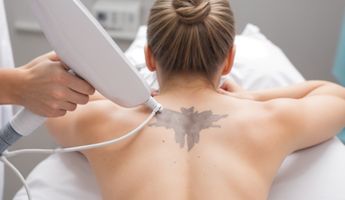
Find the best clinics for Laser Tattoo Removal in Cape Town
No pricing info available
Vietnam offers the best prices Worldwide
Price: $ 3
From 18 verified reviews
bianca bosch, 30 July 2020
Best energy healing practice! So happy to have found such a great healer as well as mentor. The results each time seem to amaze me, align me with my truth, bring me closer to my souls purpose. Thank you for what you do, Charmaine
From 3 verified reviews
Andrea Coetzee, 24 May 2019
Amazing service, professionalism and an absolute expert.
From 14 verified reviews
Harold Idesis, 15 January 2020
Always excellent. I see Danielli who is wonderful at what he does.
Lavish, located in Syfred Douglas St, Cape Town, South Africa offers patients Laser Tattoo Removal procedures among its total of 18 available procedures, across 1 different specialties. Currently, there's no pricing information for Laser Tattoo Removal procedures at Lavish, as all prices are available on request only. All procedures and treatments are undertaken by the lead specialist at the Hospital, and they are not accredited by any recognized accreditations institutes
Simply Skin at Tamzyn, located in Syfred Douglas St, Cape Town, South Africa offers patients Laser Tattoo Removal procedures among its total of 46 available procedures, across 3 different specialties. Currently, there's no pricing information for Laser Tattoo Removal procedures at Simply Skin at Tamzyn, as all prices are available on request only. All procedures and treatments are undertaken by the lead specialist at the Hospital, and they are not accredited by any recognized accreditations institutes
Skin and Body Solutions, located in Syfred Douglas St, Cape Town, South Africa offers patients Laser Tattoo Removal procedures among its total of 46 available procedures, across 3 different specialties. Currently, there's no pricing information for Laser Tattoo Removal procedures at Skin and Body Solutions, as all prices are available on request only. There is currently a lack of information available on the specialists practicing at the Hospital, and they are not accredited by any recognized accreditations institutes
Laser Clinic, located in Syfred Douglas St, Cape Town, South Africa offers patients Laser Tattoo Removal procedures among its total of 3 available procedures, across 2 different specialties. Currently, there's no pricing information for Laser Tattoo Removal procedures at Laser Clinic, as all prices are available on request only. All procedures and treatments are undertaken by the lead specialist at the Clinic, and they are not accredited by any recognized accreditations institutes
- Home
- South Africa
- Cape Town
Compare Before & After Photos of _procedure_photos.phpLaser Tattoo Removal


Front view
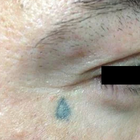
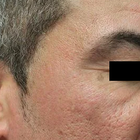
Half-side view
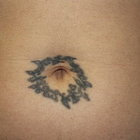
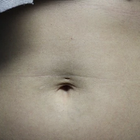
Front view
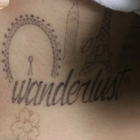
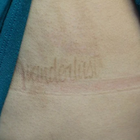
Front view
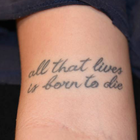
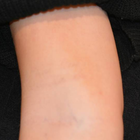
Front view
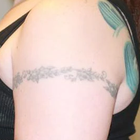
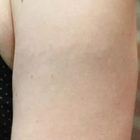
Full-side view
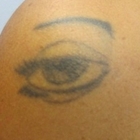
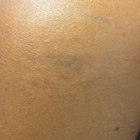
Front view
WHY US?
At Medijump, we're making medical easy. You can search, compare, discuss, and book your medical all in one place. We open the door to the best medical providers worldwide, saving you time and energy along the way, and it's all for FREE, no hidden fees, and no price markups guaranteed. So what are you waiting for?

Free

Best Price

Widest Selection

Risk-Free
What you need to know about Laser Tattoo Removal in Cape Town
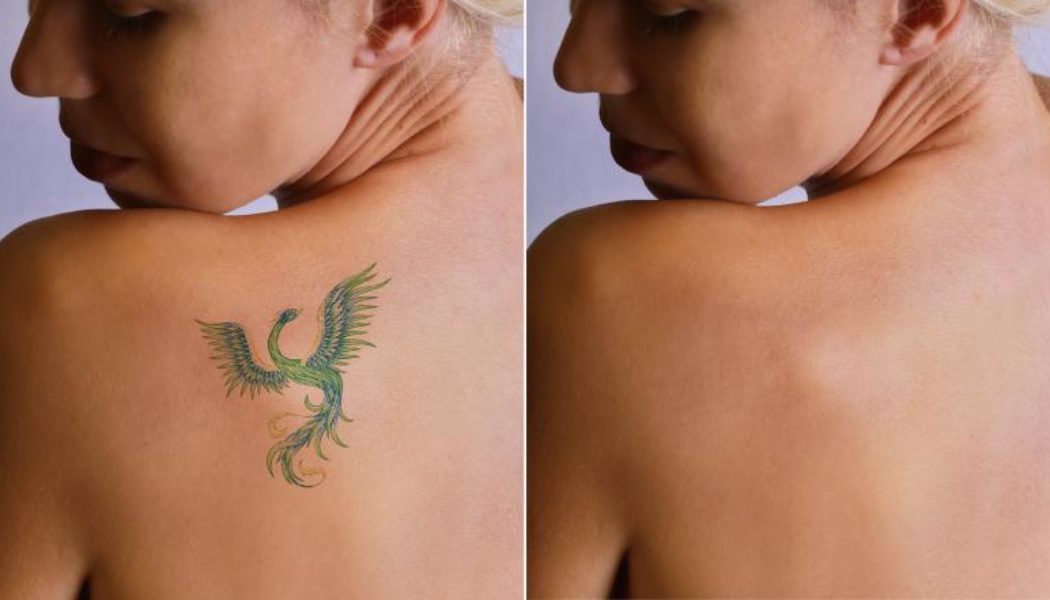
Laser tattoo removal is a technique to eliminate an unwanted tattoo with little to no side effects. It works by breaking up the pigment colors with a high-intensity light beam. You can undergo a laser tattoo removal if you regret having a tattoo, unhappy with the appearance of your tattoo, the tattoo causes infection, or you have an allergic reaction to the tattoo. Once you've done laser tattoo removal, your unwanted tattoo will be gone forever.
Grasping the notion that Laser Tattoo Removal is not a one-off activity, but instead encompasses an array of treatments distributed over multiple weeks, is crucial. Variables like the dimensions, hue, tattoo positioning, along with the person's general well-being determine the count of requisite sessions.
What is the cost of Laser Tattoo Removal in Cape Town?
In Cape Town, the Laser Tattoo Removal cost can greatly fluctuate. It hinges upon several considerations such as the size, emplacement, tattoo color, and the amount of needed therapy sessions. Other influencing factors are the laser technology utilized and the reputation of the clinic.
The majority of clinics in Cape Town extend payment schemes and financing aids to render the process more financially manageable. Bear in mind, though, that Laser Tattoo Removal isn't typically included in medical insurance coverage as it's deemed a beauty-related procedure. Irrespective of the expenditure, it is vital to give precedence to first-rate care and the proficiency of the healthcare staff over cost-effectiveness.
What does a Laser Tattoo Removal Procedure Involve?
The process of Laser Tattoo Removal entails directing particular wavelengths of laser light on the tattooed part of the skin. A highly specialized laser is chosen depending on the colors present in the tattoo for carrying out this technique. The light pulses penetrate the skin's topmost layers to reach the tattoo's pigment. This energy from the light leads to the fragmentation of the tattoo ink into minute particles, which are gradually flushed out by the body's immunity system.
Most people do not need anesthesia, but you can ask for a topical or local anesthetic from your doctor. During the procedure, you will have to wear protective eye shields. Then, your doctor or technician uses a laser to bring pulses of intense light to the top layers of your skin and only the tattoo pigment will absorb this light. Depending on the size, color(s), and age of your tattoo, you might need more than one treatment session.
How Long Should You Stay in Cape Town?
You can leave Cape Town after your tattoo removal procedure. However, it may take several treatments to completely remove the tattoo. Given that everyone reacts distinctively, the process might necessitate anywhere from 3 to 10 visits. The interval between each treatment is around 7 weeks to allow the treated area enough time to heal. You are free to retreat to your home, or a place of your choosing, in between these sessions. This sequence persists until your tattoo is completely removed. Nevertheless, it is critical to resume your journey to Cape Town for each forthcoming Laser Tattoo Removal.
What's the Recovery Time Like?
You will feel pain and discomfort for around a week, but your skin will completely heal in around six weeks. You should be able to go to work as long as you do not feel any pain or discomfort that interferes with your life.
Right after every session, you may observe minor swelling and a reddish tint on the manipulated area. These indications normally wane within a short span that can range from a few hours to two days and can be tamed with chilled packs and popularly accessible pain relievers. Evading exposure to sunlight and demanding activities in the initial few days is of utmost importance to forestall probative issues.
What sort of Aftercare is Required for Laser Tattoo Removal Procedures in Cape Town?
Your doctor will give you aftercare instructions; make sure to follow the instructions. Keep the treated area clean, do not soak the area, and try to avoid popping blisters. If the treated area itches, apply hydrocortisone cream. Avoid smoking as it can reduce the effectiveness of laser tattoo removal by around 70%.
The treated region should also be protected from the sun and covered with a high SPF sunscreen because the skin will be more susceptible to UV deterioration. Additionally, avoiding activities that could result in significant sweating or close contact with the area of the skin that is receiving treatment is advised. You must avoid the impulse to pick or scratch at the treated area if you want the skin to heal properly. Finally, maintaining effective healing and general health requires drinking plenty of water and eating a diet that is nutritionally balanced.
What's the Success Rate of Laser Tattoo Removal Procedures in Cape Town?
Laser tattoo removal is the most effective tattoo removal treatment with a success rate of over 95%. It's important to understand that when discussing tattoo removal, the term "effectiveness" typically refers to the degree of tattoo fading rather than complete tattoo removal. The depth, type, and concentration of the ink, the tattoo's colour, as well as the recipient's skin features and overall health, can all have an impact on the final design.
Are there Alternatives to Laser Tattoo Removal Procedures in Cape Town?
Laser Tattoo Removal has evolved into a highly effective strategy for eliminating tattoos, but you're afforded various other alternatives if Laser Tattoo Removal does not align with your requirements. Intense pulsed light (IPL) therapy, for instance, where light pulses are deployed to dissolve the tattoo ink, could be a viable proposition particularly for larger tattoos. However, for heavily inked or deeper tattoo locations, IPL might not yield the desired outcome.
Dermabrasion is yet another alternative. It's a process that employs skin 'sanding' to eliminate the surface and middle skin layers. Compared to laser treatments, dermabrasion can be less comfortable and requires a more prolonged healing duration. In certain instances, it might also be viable to surgically remove the tattoo with a scalpel, but be prepared for the potential of scarring. Therefore, when deciding on the best course of action, it's important to discuss your unique requirements and expectations with a specialist.
What Should You Expect Before and After the Procedure
Before the Laser Tattoo Removal, there will be a discussion with the expert regarding your health history, the treatment information, and your anticipated outcomes. The area on which the tattoo is located must be hygienic and devoid of any ongoing skin issues. A topical anesthesia may be applied during the session for your comfort. The feeling you might experience when the laser is used could be likened to the feeling of a rubber band being flicked against your skin.
Post-treatment, the tattooed section may look inflamed and red, and it could feel a bit warm to the touch and tender. These symptoms should diminish over a few days. It is vital that you adhere to the follow-up care guidelines given by the clinic to ensure the best healing process and outcome. Generally, this requires cleanliness of the area, avoiding direct sun, and abstaining from activities that can irritate the skin. Regular check-ups of your healing process with your expert can assist with timely detection and management of any potential post-treatment issues.
What are Potential Risks of Laser Tattoo Removal?
Laser Tattoo Removal carries some side effects and risks, such as:
- Infection
- Hypopigmentation and hyperpigmentation (treated skin becomes significantly darker or lighter than its surroundings)
- Scarring, bleeding, swelling, and blisters
It's important that you get proper treatment by a reputable doctor to avoid these side effects and risks.
Whilst the information presented here has been accurately sourced and verified by a medical professional for its accuracy, it is still advised to consult with your doctor before pursuing a medical treatment at one of the listed medical providers
No Time?
Tell us what you're looking for and we'll reachout to the top clinics all at once
Enquire Now

Popular Procedures in Cape Town
Prices Start From $28

Prices Start From $6,002

Prices Start From $278

Recommended Medical Centers in Cape Town for Laser Tattoo Removal

- Interpreter services
- Translation service
- Religious facilities
- Medical records transfer
- Medical travel insurance
- Health insurance coordination
- TV in the room
- Safe in the room
- Phone in the room
- Private rooms for patients available

- Interpreter services
- Translation service
- Religious facilities
- Medical records transfer
- Medical travel insurance
- Health insurance coordination
- TV in the room
- Safe in the room
- Phone in the room
- Private rooms for patients available

- Interpreter services
- Translation service
- Religious facilities
- Medical records transfer
- Medical travel insurance
- Health insurance coordination
- TV in the room
- Safe in the room
- Phone in the room
- Private rooms for patients available

- Interpreter services
- Translation service
- Religious facilities
- Medical records transfer
- Medical travel insurance
- Health insurance coordination
- TV in the room
- Safe in the room
- Phone in the room
- Private rooms for patients available

- Interpreter services
- Translation service
- Religious facilities
- Medical records transfer
- Medical travel insurance
- Health insurance coordination
- TV in the room
- Safe in the room
- Phone in the room
- Private rooms for patients available

- Interpreter services
- Translation service
- Religious facilities
- Medical records transfer
- Medical travel insurance
- Health insurance coordination
- TV in the room
- Safe in the room
- Phone in the room
- Private rooms for patients available

- Interpreter services
- Translation service
- Religious facilities
- Medical records transfer
- Medical travel insurance
- Health insurance coordination
- TV in the room
- Safe in the room
- Phone in the room
- Private rooms for patients available

- Interpreter services
- Translation service
- Religious facilities
- Medical records transfer
- Medical travel insurance
- Health insurance coordination
- TV in the room
- Safe in the room
- Phone in the room
- Private rooms for patients available

- Interpreter services
- Translation service
- Religious facilities
- Medical records transfer
- Medical travel insurance
- Health insurance coordination
- TV in the room
- Safe in the room
- Phone in the room
- Private rooms for patients available

- Interpreter services
- Translation service
- Religious facilities
- Medical records transfer
- Medical travel insurance
- Health insurance coordination
- TV in the room
- Safe in the room
- Phone in the room
- Private rooms for patients available
Laser Tattoo Removal in and around Cape Town
About Cape Town
Cape Town is the legislative capital of South Africa and is also known as the Mother City. It is the oldest city in the country and home to the Parliament of South Africa and is a major destination for immigrants and expatriates, making it one of the most multicultural cities in the world. Located on the shore of Table Bay, the city is known for its harbor, natural setting, as well as famous attractions and many tourists, visit to enjoy Table Mountain and Cape Point.
Recently, tourists also come to the city for its medical tourism. Many groundbreaking procedures and medical research in South Africa, such as the world’s first penile transplant, have put Cape Town under the radar of medical tourists from all around the globe. Thanks to its world-class healthcare and world-renowned medical practitioners, more and more people now prefer Cape Town as their medical destination. The healthcare in the city is among the best on the African continent. Other reasons such as shorter waiting times for surgeries, state-of-the-art equipment, and affordable healthcare compared to Europe and the United States, and English-speaking doctors.
Popular Areas in Cape Town
Cape Town is a natural beauty that offers a wide range of things to do and see. From culture, food, art, to nature. Listed below are some of the more popular places in the city:
- Table Mountain is one of the New 7 Wonders of Nature and it is easy to see why. The iconic mountain makes an amazing backdrop to Cape Town. The level plateau is about 3 kilometers from side to side with remarkable cliffs on the edges. The peak offers an amazing view of the city. Tourists can choose to board the cable car or discover its beautiful nature by hiking.
- Cape of Good Hope is situated within the Table Mountain National Park. The area has a mix of bio-diversity and wonderful beauty that attracts thousands of tourists to visit. There are around 250 species of birds spotted in the area. Hiking and cycling through it is the best way to discover its true majesty. Tourists can picnic and birdwatch in isolated beaches.
- Kirstenbosch National Botanical Garden is one of the most incredible botanic gardens in the world. Nestled at the eastern foot of Table Mountain, it features a natural forest and fynbos flora and sprawls around 528 hectares. The garden displays a collection of diverse South African plants with seasonal festivals such as musical sunset concerts during summer and craft markets on the last Sunday of every month.
- Groot Constantia is the oldest wine-producing estate in South Africa, located in the suburb of Constantia. The estate consists of a museum, restaurants, tasting room, and cellars. The museum was built in Cape Dutch architecture style, further into the estate; tourists will find the free orientation center which provides an overview of Groot Constantia history. Tourists can also tour the original wine cellar, have a wine tasting, or a wine and chocolate pairing.
- Boulders Penguin Colony is located in Boulder Beach on the outskirts of Simon’s Town. The beach boasts fine white sand with pristine waters and endangered African penguin colonies. Tourists can set up camp, see the penguins up close, and even swim along with the magnificent aquatic birds. Observing the penguins socializing and playing in the waves is a perfect way to enjoy your travel in Cape Town.
Weather and Climate in Cape Town
Cape Town enjoys a warm Mediterranean climate. The summer is dry and warm, lasting from early December to March. The average maximum temperature during this season is around 26 °C, and the minimum is 16 °C. The Berg Wind that arrives from February to early March can make the city uncomfortably hot for a couple of weeks.
The winter starts in June and ends in August and the season is characterized by mild and wet weather. The city also experiences strong north-westerly winds during this season. The average temperature ranges between 8.5 °C at the lowest and 18 °C at the highest.
Getting Around in Cape Town
The primary airport that serves Cape Town is the Cape Town International Airport and it is the second busiest airport in South Africa and the fifth busiest in Africa. The airport serves direct domestic flights to major cities and several small centers in the country. It also connects the country with major cities in Africa, Europe, the Middle East, and Asia. It is the hub for South African Express as well as budget airlines such as Mango and FlySafair.
There are several types of taxis: the metered taxis, Rikkis Taxis, and minibus taxis. The metered taxis can be a little expensive but are usually comfortable. Tourists can order one via a phone call or from one of the city’s official taxi stands. Tourists should always choose reputable taxi companies such as Marine Taxi, Unicab, Excite, and SA Cab.
Rikkis Taxis are painted yellow and very popular and these taxis run on a fixed fare rather than metered, so they are a little more affordable than metered taxis and a good option if you are traveling on longer journeys. Other than the Rikkis Taxis, tourists can choose the minibus taxis which are perfect for adventurous foreign travelers. The minibus taxis can be found practically everywhere and are very cheap, however, you will need to know exactly where your destination is and tell the driver when to stop. Another travel option is the MyCiTi bus, a modernized and effective bus system.
Tourist Visas in Cape Town
There are more than 60 countries listed in the visa exemption agreements, which means the citizens of these countries can stay in South Africa for up to 90 days. Other countries not listed must obtain a valid visa to enter the country. A Medical Treatment Visa is available for medical tourists. Note that all visitors must hold a passport valid for at least 30 days after the expiration of their intended visit.
Additional Information
- Local Currency: South African Rand (ZAR) is the official currency and 1 USD converts to 14 ZAR.
- Money & Payments: Tourists can find ATMs almost everywhere around the city, but you should avoid ATMs in secluded places, especially at night. Credit cards are accepted in established restaurants, hotels, and shops. It is always better to carry some cash because smaller food places are cash-only. Tipping is expected here.
- Local Language: The most common languages in the city are English, Afrikaans, and Xhosa with Afrikaans as the most widely spoken home language.
- Local Culture and Religion: The population follows Christianity, Islam, Judaism, and several other religions.
- Public Holidays: There are 12 official public holidays in Cape Town, including New Year’s Day, Freedom Day, and Christmas.
Popular Searches
- Plastic Surgery in Thailand
- Dental Implants in Thailand
- Hair Transplant in Thailand
- Breast Augmentation Thailand
- Gastric Sleeve in Thailand
- Gender Reassignment Surgery in Thailand
- Laser Hair Removal in Bangkok
- Botox in Bangkok
- Dermatology in Bangkok
- Breast Augmentation in Bangkok
- Coolsculpting in Bangkok
- Veneers in Turkey
- Hair Transplant in Turkey
- Rhinoplasty in Turkey
- Stem Cell Therapy in Mexico
- Rhinoplasty in Mexico
- Liposuction in Mexico
- Coolsculpting in Tijuana
- Rhinoplasty in Korea
- Scar Removal in Korea
- Gastric Sleeve in Turkey
- Bone Marrow Transplant in India
- Invisalign in Malaysia
- Plastic Surgery in the Dominican Republic
- Tummy Tuck in the Dominican Republic
- Plastic and Cosmetic Surgery in Poland
- Rhinoplasty in Poland
- Hair Implant in Poland
- Dental Implants in Poland
- IVF in Turkey


